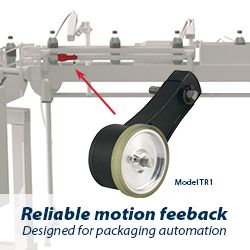ZEISS to build new state-of-the-art facility in the Detroit metro area
ABB inaugurates advanced innovation and manufacturing hub in Xiamen
ABB to Build the World's Most Advanced Robotics Factory in Shanghai
Unlocking the potential of the Fourth Industrial Revolution
Pioneering creator of collaborative 'cobots' Rethink Robotics shuts down
HANNOVER MESSE USA 2018: North America's Stage For Industry 4.0
Europe, Asia Lead the Way to the Factories of the Future
RECORD BREAKER: IMTS 2018 LARGEST SHOW EVER
World Economic Forum: A.I. and robotics will create almost 60 million more jobs than they destroy by 2022
Sensors Midwest Partners with Fraunhofer USA and Sonoma State University, CA, to host IoT Enabled Industry 4.0 Certification Workshop
IMTS 2018 TO BE FIRST SHOW TO FULLY OCCUPY MCCORMICK PLACE
THE INDUSTRIAL INTERNET CONSORTIUM PUBLISHES INDUSTRIAL NETWORKING ENABLING IIOT COMMUNICATION WHITE PAPER
Anticipation Builds for the Largest Packaging Event of 2018
Manufacturers Are Concerned Skilled Labor Shortage Could Stymie Innovation, Finds L.E.K. Consulting Survey
SFA Explores MFG Day - Three journeys to close the MFG skills gap explored
Records 436 to 450 of 664
First | Previous | Next | Last
Automation & IIoT - Featured Product

